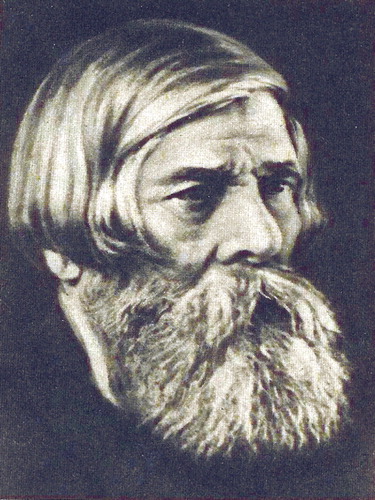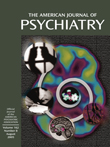Vladimir Bekhterev, 1857–1927
In the history of medicine, there have been few outstanding physicians or researchers who were specialists in both neurology and psychiatry. One of them was the Russian scientist Vladimir Bekhterev.
Vladimir Mikhailovich Bekhterev, the son of a low-ranking government official, was born in Sarali, a small village in the forests of the Viatka Territory between the great bend of the Volga and the foothills of the Ural Mountains.
At the age of 16, Bekhterev entered the Military Medical Academy in St. Petersburg, graduating in 1878 at the age of 21 with a degree comparable to Bachelor of Medicine. In 1884 Bekhterev, then 26 years old, received a travel scholarship for approximately 18 months (1).
On returning to Russia in 1885, he was already well known. He accepted a Chair in Psychiatry and worked in a psychiatric clinic in Kazan until 1893 and then at the Military Medical Academy in St. Petersburg. He served as a professor and director of the clinic for mental and nervous illnesses in the following years until his sudden and mysterious death in 1927. After his death, his name and works were deleted completely from the textbooks and scientific literature by Stalin’s orders (2).
Bekhterev’s name is connected to 13 eponyms, the most famous including Bekhterev’s disease (a chronic and progressive disease characterized by arthritis, inflammation, and eventual immobility of a number of joints), Bekhterev’s nucleus (the superior nucleus of the vestibular nerve), and Bekhterev’s nystagmus (nystagmus that develops after the destruction of the labyrinth). Bekhterev was extremely versatile in his academic interests and fields of research, which embraced hypnosis and even psychosurgery. Psychiatrists and neurologists at the beginning of 20th century were wont to joke: “Only two know the mystery of brain structure and organization: God and Bekhterev.” It is ironic that today Bekhterev mostly is remembered only for the eponymous disease, a marginal contribution to medicine.
Independently of Pavlov, Bekhterev developed a theory of conditioned reflexes and invented the term reflexology, which he defined as a scientific discipline that studies the response to external or internal stimuli (3). Bekhterev assumed the existence of two psychological systems: subjective, whose basic method of study is introspection, and objective (conditioned reflex). Thus, before Watson, Bekhterev had founded an objective psychology without recognizing it as such (4).
A complete list of Bekhterev’s writings comprises 800 publications.
From the Ministry of Health Mental Health Center, Faculty of Health Sciences, Ben-Gurion University of the Negev, Be’er-Sheva, Israel. Address correspondence and reprint requests to Dr. Lerner, Be’er-Sheva Mental Health Center, P.O. Box 4600, Be’er-Sheva, 84170, Israel; [email protected] (e-mail). Image (Vladimir M. Bekhterev, 1927) courtesy of Dr. Lerner, from his father’s collection.

Vladimir Mikhailovich Bekhterev
1. Bekhterev VM: Avtobiografiya (Postmertnaya) [Autobiography (Posthumous)]. Moscow, Biblioteka Ogonyok, 1928Google Scholar
2. Lerner V, Margolin J, Witztum E: Vladimir Bekhterev: his life, his work and the mystery of his death. History of Psychiatry 2005; 16:217–227Crossref, Medline, Google Scholar
3. Fraisse P: The evolution of experimental psychology: Russia, in Experimental Psychology: Its Scope and Method. Edited by Fraisse P, Piaget J. London, Routledge and Kegan Paul, 1968, p 54Google Scholar
4. Bekhterev VM: Collective Reflexology: The Complete Edition. Edited by Strickland LH; translated by Lockwood E, Lockwood A. New Brunswick, NJ, Transaction Publishers, 2001Google Scholar



